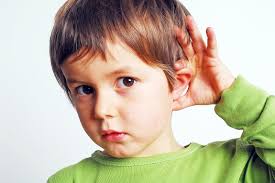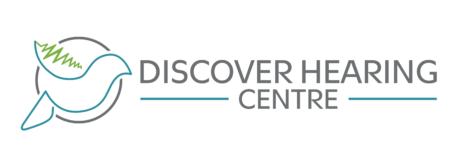Hearing Loss in Children

It’s back to school time, and classes are in full swing. Children are adjusting to their new classrooms, developing new friendships and creating routines. Hearing loss can happen at any time- from birth to adulthood. It is important that we advocate for our young learners and make sure that they have all the skills and resources they need to be effective students and friends. Many causes of hearing loss are out of our control, but there are many things we can do as parents to prevent hearing loss or to deal with it before the deficit becomes more difficult to treat.
Causes of Hearing Loss in Children:
Before a baby is discharged from the hospital, they will receive a hearing test/ screening, where most deficiencies are detected. However, many things can occur in the first few days, to the first few years of life that can lead to hearing loss.
Congenital Hearing Loss – This affects about 50% of cases with a hearing impairment. The child is usually born with hearing loss and may have a family member with a hearing impairment.
Non-genetic factors (25% of cases) that may cause congenital hearing loss include:
- Birth complications- including rubella, herpes or other serious infections
- A nervous system/ brain disorder
- Use of Ototoxic drugs (drugs that cause hearing loss) during pregnancy. These drugs can actually damage the auditory nerve or other hearing structures while the fetus is developing.
- Premature birth- Babies that have a birth weight of less than 3 pounds are at an increased risk of hearing loss
- Maternal diabetes, drug or alcohol abuse, smoking by mother during pregnancy
* * * 25% of all congenital hearing loss cases have no cause * * *
Acquired Hearing Loss– children can also be affected by this type of hearing loss. It occurs at any point after birth. There are various causes, including:
- A perforated eardrum
- Infections like measles, mumps, whooping cough, meningitis
- Exposures to loud noises (Noise Induced Hearing Loss)
- Head trauma
- Exposure to secondhand smoke
- Untreated/ frequent inner ear infections
Temporary Hearing Loss in Children
The most common complaint in children is a middle ear infection (Otitis media). One in four children will have had at least one infection by the time they are three. This occurs because the eustachian tubes that connect the middle ear to the nose are not fully developed. As a result, fluid begins to build up behind the eardrum, which usually leads to infection. Ear infections can be painful, and may affect your child’s ability to hear (temporarily). Sometimes, there is no fever or pain to go along with an ear infection. This could lead to the fluid sitting longer in the eustachian tube. In severe and chronic cases, Otitis Media can actually lead to permanent hearing loss.
Signs and Symptoms of an Ear Infection:
- Fever – Ear Pain – Rubbing/ Pulling Ear
- Low Energy – Cranky – Turning up volume
You Might Also Like: 6 Benefits of Treating Hearing Loss
Identifying Hearing Loss in Children:
Unless a child was diagnosed with hearing loss at birth, parents and teachers are normally the first to notice delays in verbal communication. Older children sometimes develop a hearing loss that wasn’t present before. Here are some things to look for if you think your child might have hearing loss:
⦁ No reaction to loud, startling noise
⦁ Your child has been flagged for a learning disorder or ADHD- always get a hearing test done as hearing loss can mimic learning disorders and behavioral conditions
⦁ Difficulty following instructions/ directions
⦁ Has communication difficulties; speech delays, unclear speech, regression
⦁ Struggling with school or significant change in academic performance
⦁ Asking others to speak up or repeat themselves
⦁ Listening to tv or music at high volume
⦁ Complains of earache, pain or noises
⦁ Watches a speaker’s face to read lips
Effects of Hearing Loss on Children:
Hearing impairment can affect a child’s ability to develop speech, language, and social skills. Research shows, the earlier a child with hearing loss start getting services, the more likely they are to reach their full potential. If you are a parent and you suspect your child has trouble hearing, trust your instincts and speak with your child’s doctor or book them in for a hearing test. You do not require a referral to have a hearing test.
Treatment Options:
Once a child has received a hearing test, the audiologist or hearing specialist will decide which treatment will be most effective. Whether they receive hearing aids or cochlear implants, they will also require some speech therapy to help improve any deficits the child may be dealing with.
Occasionally, a child may have a build up of wax affecting their hearing, which can also be treated by a Hearing Instrument Specialist or Audiologist.
For more information on types of hearing aids/ devices available to children visit:
https://www.chop.edu/treatments/hearing-aids-and-devices-children-hearing-loss
What can you do?
You can help your child have a lifetime of healthy hearing by protecting their ears from loud sounds, including headphones and loud toys. Consequently, Noise Induced Hearing Loss (NIHL) is on the rise in children and teens, in particular from earbud/ headphone use at high volumes for long periods.
Most importantly, get the right treatment as early as possible. There is no minimum age to get a hearing test done for a child. Hearing tests are quick and painless for children and can give Hearing Instrument Specialist, Audiologist, and doctors a lot of valuable information. Furthermore, they can be used as a baseline to compare any changes that a child may have over time. Hearing devices can provide children with the tools they need to be successful. The sooner a child gets the help they need, the quicker they can get back to playing, learning and keeping up with other children.
You Might Also Like
The Impact of Noise Pollution on Hearing Health
How to Maintain and Care for Your Hearing Aids
Custom Hearing Protection: When and Why You Need It
Have Questions?
Call our office if you have any questions about your hearing loss or anything else related to hearing. We are happy to help and answer any questions you may have.





